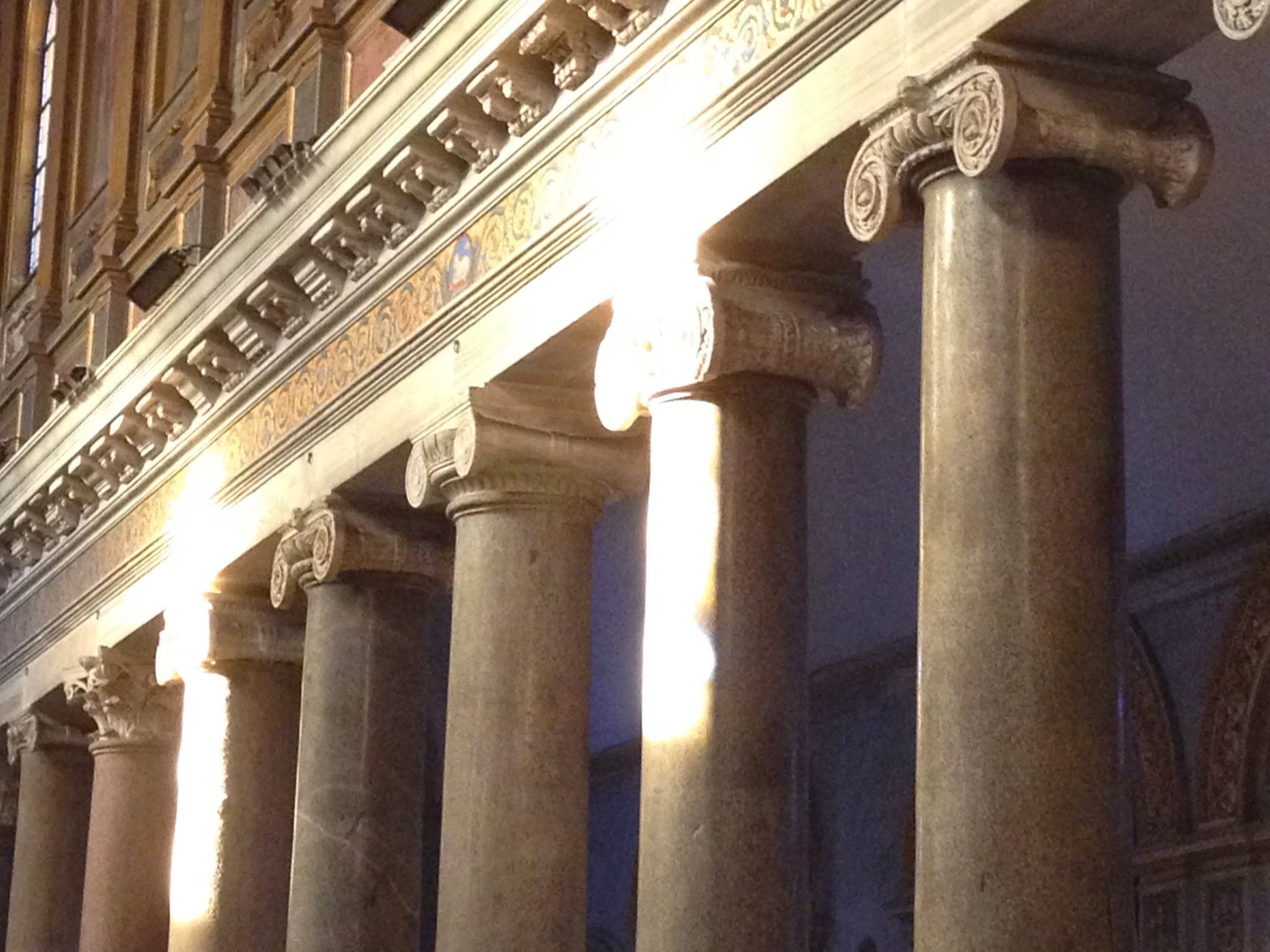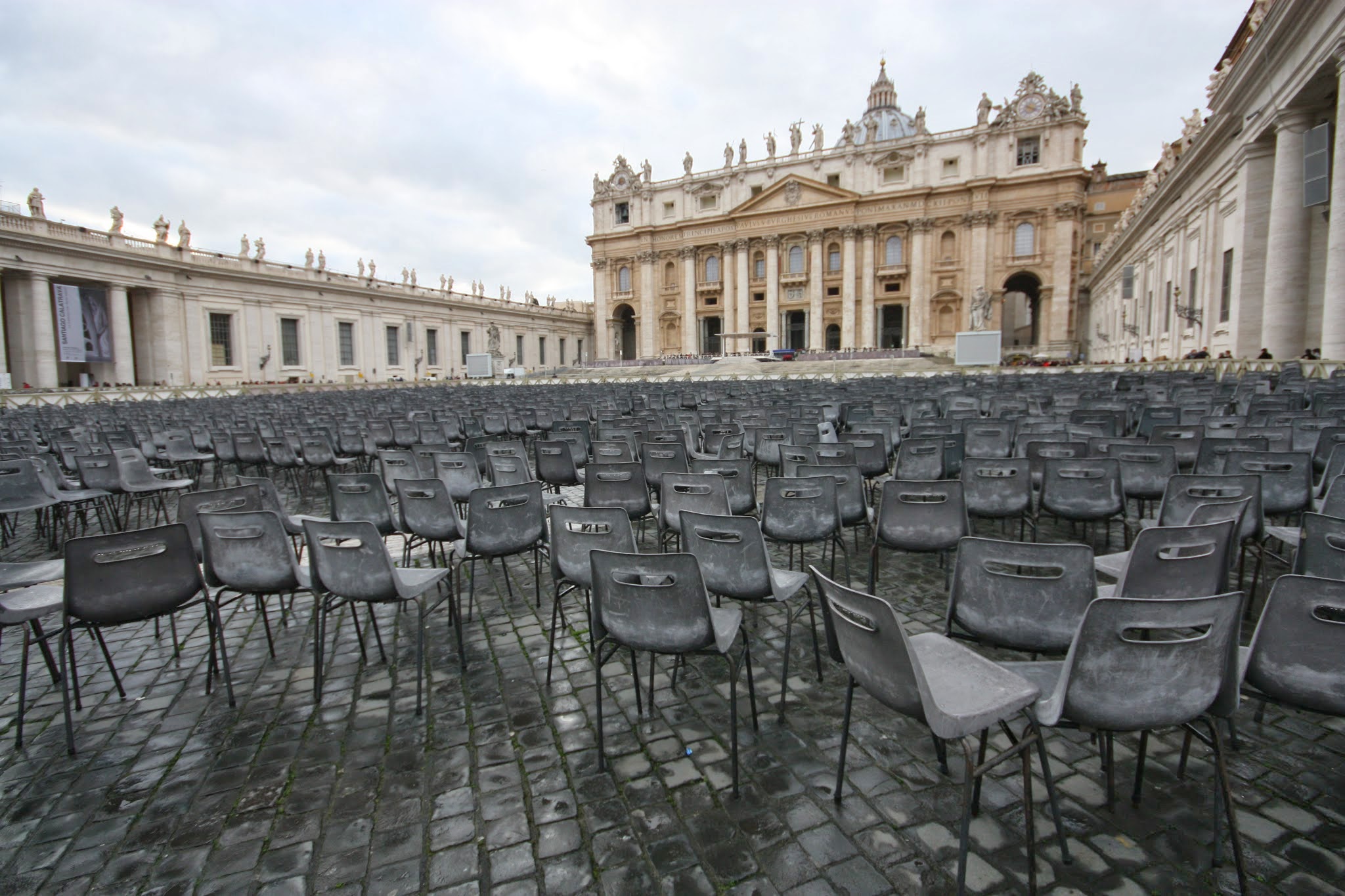To visit great buildings of the Roman past is to visit even older buildings of the Roman past. Spolia -- materials reused for later buildings -- is almost the essence of the Roman urban landscape. To visit St. Peter's is to visit the Colosseum and other ancient buildings, because in those walls are the materials from those ancient buildings. Freud, in making his famous analogy between repressed memory and the layers of the Roman past, notes that "many of the baroque palaces of Rome bear to the ancient ruins, whose hewn stones and columns have furnished the material for the structures built in the modern style" (Interpretation of Dreams). (By the way, before you lash out agains the Catholic Church or the Renaissance more generally, for destroying by appropriation so much of the Roman past, read my colleague David Karmon's book, Ruins of the Eternal City, who argues that as much as they pillaged Roman buildings, the Popes and leaders of city government had thoughtful approaches to historic preservation, even if we not agree with them today).
Here are a few images I have taken over the past several months of spolia.
Santa Sabina on the Aventine
Santa Sabina
Theater of Pompey, near Campo dei' Fiori
near Santa Maria in Cosmedin
Near Largo Argentina
Via Coronari
San Clemente
Santa Maria in Trastevere
St. Peter's Basilica












No comments:
Post a Comment